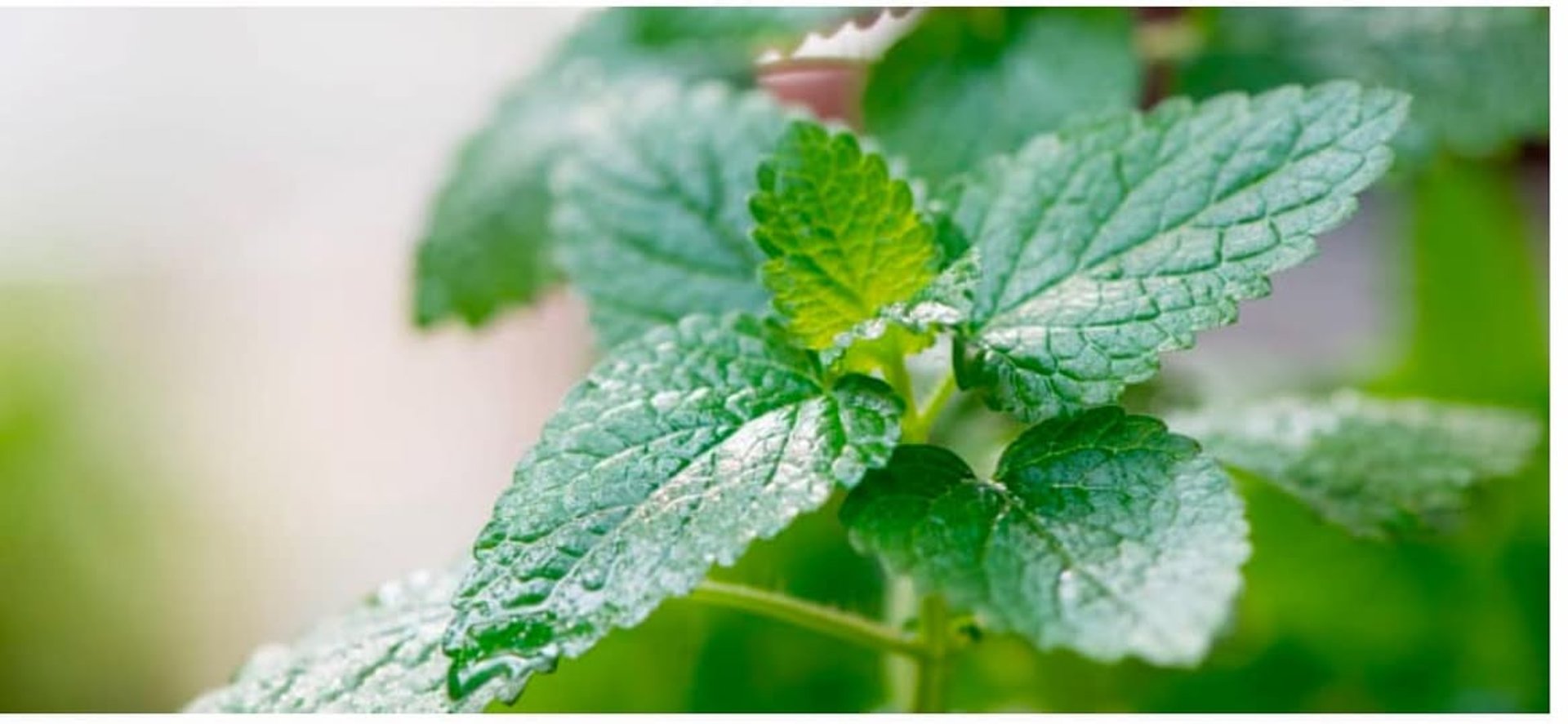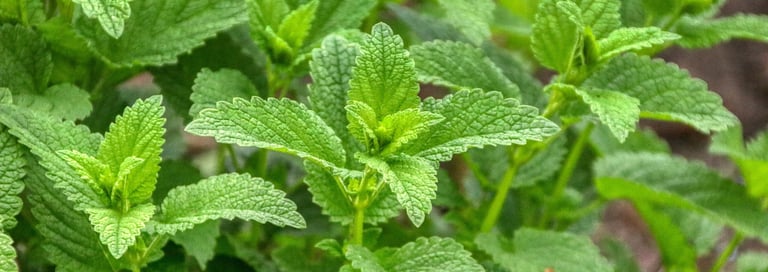
Lemon Balm
Nature’s Remedy for Stress & Wellness
Lemon Balm (Melissa Officinalis) - The Calming Herb for Mind and Body
Lemon balm is a fragrant herb from the mint family, also known as Melissa officinalis. It has been used for centuries for its calming properties and health benefits.
Health Benefits of Lemon Balm
1. Supports Heart and Liver Health
Lemon balm may help protect the heart and liver by lowering triglycerides and improving cholesterol levels. Studies suggest that inhaling its essential oil can slow the growth of certain liver cancer cells.
It may also help regulate heart rhythm, lower blood pressure, and reduce palpitations. Traditional Iranian medicine has long used lemon balm to calm irregular heartbeats, and research confirms its benefits in improving heart function.
2. A Natural Antibacterial Agent
Lemon balm has antimicrobial properties that help fight harmful bacteria. It is particularly effective against Candida, a common yeast infection that can cause fatigue, brain fog, and digestive issues.
3. May Help with Diabetes & Metabolism
Studies show that lemon balm can help lower blood sugar levels and reduce oxidative stress linked to diabetes. Researchers believe it may support metabolic health, digestion, and weight management—though it's not a quick-fix for weight loss, it could be a helpful addition to a balanced lifestyle.
4. Reduces Anxiety & Improves Sleep and Focus
Lemon balm has a natural calming effect, making it useful for reducing anxiety, stress, and insomnia. Studies also suggest it may improve concentration and cognitive function, even helping children with hyperactivity and impulsivity.
Additionally, it can ease menopause-related symptoms such as restlessness and hot flashes, making it a great herbal sleep aid.
A Glimpse into Lemon Balm’s History
Lemon balm has been used for over 2,000 years in herbal medicine. The ancient Greeks and Romans prized it for its soothing properties, often using it to treat wounds, digestive issues, and nervous conditions. In medieval times, monks grew lemon balm in monastery gardens as a remedy for anxiety and insomnia. It was also a key ingredient in the famous Carmelite Water, a herbal tonic used by European royalty for centuries to relieve stress and indigestion.
Today, lemon balm continues to be valued for its versatile health benefits and remains a staple in herbal remedies worldwide.


Lemon Balm – origin and best ways to use the herb
Etymology:
The name lemon balm refers to the plant’s characteristic lemon scent. The Latin name Melissa officinalis comes from the Greek word melissa, meaning “honeybee” (from meli = honey), as the plant is highly attractive to bees. Officinalis indicates its traditional use in medicine – a common label for healing herbs. In Swedish, “citron-” was later added to distinguish it from other types of balm and to highlight the lemony taste.
Taste:
Lemon balm has a mild, fresh, citrusy flavor with gentle herbal notes. It is both calming and uplifting, making it very pleasant in both teas and culinary use.
Best ways to use lemon balm for health:
As a tea (infusion):
Fresh or dried lemon balm leaves make an excellent tea. Use 1–2 teaspoons of dried leaves (or a few fresh sprigs) steeped in hot water for 5–10 minutes. This is a classic remedy for anxiety, sleep difficulties, mild depression, and digestive issues.In cold beverages:
Fresh leaves can be added to cold water along with lemon or other herbs for a refreshing and gently calming drink, especially in summer.As a tincture or extract:
Lemon balm is available as liquid extract, and sometimes in quantum nutritional form, which provides a stronger and more direct effect on the nervous system. It can help balance stress, promote relaxation, and support the immune system.In food:
Chopped leaves go well in salads, fruit salads, dressings, desserts, and even with some fish dishes. This is a gentle way to integrate the herb into daily life.Essential oil (used with caution):
Lemon balm essential oil is highly concentrated and can be used in aromatherapy for relaxation and stress relief but should not be ingested without professional guidance.
